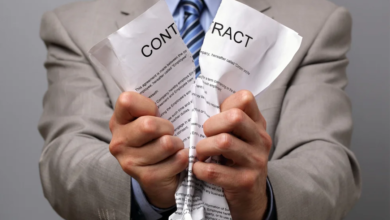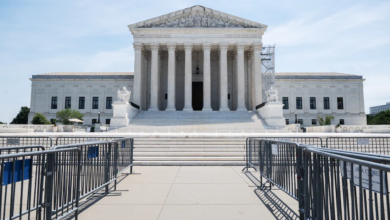What Happens to the Mortgage When Someone Dies?

When you die, someone else will have to pay your mortgage. This means that your executor will first use your valuable assets, other assets, or the money from your life insurance to pay off your debts before giving them to your heirs.
On the other hand, there is a different way to deal with mortgage debt.
No one has to pay the mortgage unless they co-signed the loan or are a co-borrower with you. But there are laws that let the person who inherits the house keep it and take over paying the mortgage if they want to. Another option is for the family left behind to pay the mortgage while getting ready to sell the house.
If no one inherits your mortgage or pays it off after you die, the process of foreclosure will begin. Read on to find out what happens to a mortgage loan when the person who took it out dies and what happens to family members who still live in the house.
Who’s Responsible When Someone Dies In Case Of Mortgage
When you die, what will happen to your mortgage? If no one takes over the mortgage or makes payments after you die, the mortgage servicer will start the process of taking the house back.
A Co-borrower On The Mortgage
If you apply for a loan with someone else as a co-borrower, you are both financially responsible for the terms and repayment of the loan. In these situations, both borrowers are responsible for their debts.
Most of the time, they own the property that the loan is being used to buy. But you don’t have to do this because the loan and the title are two separate things. If you’re not on the title, you’re taking on the responsibility of a mortgage even though you don’t own the house.
A Co-Signer On The Mortgage
If the main borrower can’t pay back the loan, someone else can agree to do so. Usually, this person is a relative, friend, spouse, or parent.
When you co-sign a loan with someone, you both sign a contract that is legally binding. This means that the lender can come after you for payments if the main signer stops making payments on the mortgage. The lender might still hold you responsible for the missed loan payment even if you don’t live in the house.
When There Is NO Designated Beneficiary In The Borrower’s Will
If your will doesn’t name a beneficiary and no one else is paying the mortgage, the lender will sell the house to get their money back. Lenders are sometimes willing to give inheritors a reasonable amount of time to get their finances in order and decide if they want to take over the loans.
5 Ways To Handle Mortgage
Death of a borrower has an effect, but it might not be as bad as you think. Like any other loan, this one has a due date and needs to be paid back.
When it comes to mortgage debt, the stakes are much higher because family members may live there or have strong emotional ties to the home. Those who made it through the tragedy have many choices, some of which are more appealing than others.
1. Transfer Home To Relatives
While your estate is accountable for debt repayment, real estate is unique. Federal law says that lenders must let family members take over a mortgage when they inherit residential property.
This keeps lenders from enforcing a “due-on-sale” clause, which would go into effect if your heirs took over ownership of the property. Before taking over the mortgage, an heir doesn’t have to show that they can pay off the debts.
2. Refinancing And Repaying
After you die, your heirs don’t have to pay the mortgage, but the person in charge of your will makes the final decision. If a better deal comes along, they can either refinance the loan or pay off the debt in full. If you leave behind a lot of money when you die, letting your executor pay off the loan will let your heirs own the home without any debt.
3. For Married Couples
The process is easy for most people who are married. If both couples own the home and apply for the loan together, the loan is usually given to the surviving spouse (ownership of the house and responsibility for the loan).
4. Carry On With The Payments
It is very important to set up plans for your monthly payments in case you die. So, the lender can’t charge penalty fees or start the process of foreclosure. While the estate is being settled, the payments can be made by the executor, the surviving spouse, or anyone else.
If you have enough money, you could also set up automatic bill payments. Financial institutions may close your accounts when you die, so you may need to set up other ways for people to pay you.
The Consumer Financial Protection Bureau lets lenders name an inheritor as the borrower on a loan so that the borrower doesn’t have to go through the hassle of applying for a mortgage and getting it approved. Keep making payments on the mortgage you already have.
5. Options For Probate
Even though the probate process is different in each state, the court will usually choose an estate representative, who is called a “executor” when there is a will and a “administrator” when there isn’t one. This person is in charge of closing out the estate and guiding it through the probate process. Part of this process is finding the rightful creditors of the person who died.
The executor will then have to sell the estate’s assets, if necessary, to pay off creditors. Most of the time, the court will order an appraisal to find out how much the property is worth.
The executor will definitely hire a real estate agent to sell, market, and show the property.
When at least one buyer has made an offer, the executor must ask the court for permission to sell the house. The heirs and beneficiaries of the deceased person’s estate will be told about the sale, and if no one objects, the sale can go ahead with court approval.
If more than one offer comes in, all bidders usually have to show up in court to make their offers. The person who bids the most wins, and they must give the executor or administrator of the estate a cashier’s check for at least 10% of the offer price.
What Happens When Selling The Home
In some cases, the mortgage may no longer be able to be taken over by the heirs. Selling is usually an option, whether they can’t come up with the money for the payments or don’t like the property.
Valuable Equity
If the home is worth more than what is owed on it, the difference could go to your heirs. Your executor could sell the property and use the money to pay off debts or give money to your heirs. Or, a single heir can keep the difference if they pay off the mortgage and take over ownership of the home.
Negative Equity
If you owe more on your property than it is worth and no one is willing to take over the payments, your executor may be able to negotiate a short sale with your lender. If nothing else works, you could also choose to let the lender take back the house. If your family members did not co-sign the mortgage, they would not be responsible for the debt in this case.
Reverse Mortgage
When a person with a reverse mortgage dies, there are no more monthly payments to make. Home Equity Conversion Mortgages (HECMs) are the most common type of these loans. They must be paid back when the last borrower (or a qualified spouse) dies or moves out of the home.
After that, the lender will send the heirs a notice that the debt is due and payment. If they want to keep the house, they have 30 days to pay back the rest of the loan or 95% of the home’s appraised value, whichever is less. So, if they sell the property, the lender will take the money to pay back the loan.
Final Thoughts
Making a will can help you avoid fights and make sure your dependents are taken care of if you die. A will is made by the testator, who decides who gets what from his or her inheritance when the testator dies.
If you want someone who is not related to you to inherit your home, you must make a valid will. Without a will, the state decides who gets what. Usually, only blood relatives can inherit without a will.
If you don’t include them in your will and you die, someone who lives with you but isn’t married or a co-owner could lose their home.
If you want a cash advance on your inheritance, you can contact Inheritance Funding. We can help you with what you need, answer any questions you may have about the process, and help you get your money fast. With an inherited cash advance, we can give you the money as soon as 24 hours after you tell us about it. We promise the best prices and the fastest, most professional service.










